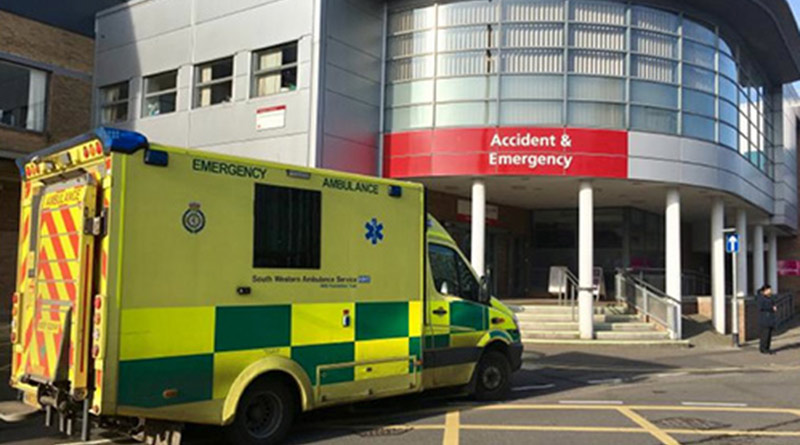NHS Workforce “Dangerously low” with Patient Demand Soaring, Scottish Government Warned
The Scottish government must take serious action in 2024 to secure the future of the NHS after a snap survey from BMA Scotland revealed that doctors working in Scotland are regularly concerned about the unsafe levels of medical staffing in their workplace.
Of the 610 responders, just 1% said they felt their department was well-staffed beyond safe levels – with 80% saying they believe staffing of both doctors and their wider multi-disciplinary support team is either sometimes (49%) or regularly (31%) unsafe.
The survey, which was open for a week earlier this month, also revealed:
- 72% of those who responded think medical staffing has worsened – decreased relative to patient demand – over the last two years.
- 62% are worried or very worried there won’t be enough doctors in Scotland’s NHS to meet patient demand this winter.
- 76% are worried there aren’t enough doctors to meet patient demand in the longer-term and ahead of next winter.
- 83% do not believe there is a proper medical workforce plan in place to improve the recruitment and retention of doctors in Scotland in the long-term.
Speaking as he delivered his annual festive message for doctors across Scotland, Dr Iain Kennedy, chair of BMA Scotland, said he was deeply concerned about the wellbeing of health and care workers this winter – and the impact short staffing and medical vacancies will have on the level of care provided for patients.
He also called on the Scottish Government to finally publish medical workforce projections which have now been delayed for nearly a year.
He added: “Both medical and wider staffing in Scotland’s NHS are at dangerously low levels. Now is not the time for platitudes or to tell us that we are at a record high in terms of doctors because it simply will not wash with the profession who are stretching themselves to breaking point, risking harm to themselves, in a bid to provide the level of care the people of Scotland need and deserve.
“I am deeply concerned that 80% of our doctors who responded to this survey are warning that their experience within their teams is that medical and support staffing is regularly or sometimes unsafe. And it seems there is little prospect of things improving with three quarters of them already worried about there not being enough doctors and other healthcare professionals to cope with demand in the longer term and ahead of next winter. Indeed, one of our doctors said ‘every week is starting to feel like working in a war zone. This is only going to get worse as the winter progresses.’
“That is coming from someone on the medical frontline. If the Scottish government will not heed BMA Scotland’s warnings, I implore Ministers and their staff, listen to Scotland’s doctors. Recently we have seen that the overall whole-time equivalent (WTE) GP numbers have fallen by more than 5% over the past 10 years, as well as increasing consultant vacancies by over 11% in the last year. We are in a medical workforce crisis, and we need more doctors and other healthcare workers to keep up with the demands of an ageing, frailer, and growing population. The Scottish government must wake up to this reality and take immediate action.
“Last year I said we needed a national conversation on the future of Scotland’s NHS, and a long-term proper medical workforce plan – my predecessor said it the year before me, and it was part of BMA Scotland’s 2021 manifesto. In the recent budget announcement, the Scottish government finally confirmed the conversation will take place in the next financial year, which I welcome and hope it will be open, honest and transparent as we have been calling for.
“Any medical workforce plan must properly forecast patient demand, and the doctors and other healthcare professionals we will need to meet that rising demand. That was promised by the government in the early part of this year, but nearly 12 months later, we are still waiting. The government themselves made these projections central to their plans, so the question must be, where is that medical workforce plan? In truth, workforce planning up until now has been disgraceful, with broken promises to recruit doctors and other healthcare workers from overseas, alongside abject failure to begin to deliver the promised additional 800 GPs, and no medical workforce strategy to put Scotland’s NHS on a sustainable footing for the long-term.
“And while we absolutely need more doctors within Scotland’s NHS it’s also vitally important to remember that the solution to this medical workforce crisis isn’t – and cannot be – just about recruitment. We must improve training opportunities for our younger colleagues who are currently suffering as result of the pressures on staff and services – with attempts to force too many doctors through narrowing bottlenecks in their training. We need to sort out issues with pay in all parts of the profession and improve working conditions so that we can actually retain the doctors we currently have rather than see them cutting hours or losing them altogether to early retirement, overseas recruitment drives, or another profession. We need a solid foundation to keep the hard working, valuable doctors we have – making medical careers as fulfilling and rewarding as we know they should always have been.
“So, if I have one wish for 2024 it is this – and I direct this at the Scottish Government in the main – listen to the doctors of Scotland, but don’t just listen. Act, and act urgently. Please. For the future survival of Scotland’s NHS and the patients who rely upon it. It is only by solving the medical workforce crisis that you can even think about making progress in other areas, like cutting waiting lists. It is non-negotiable.”






